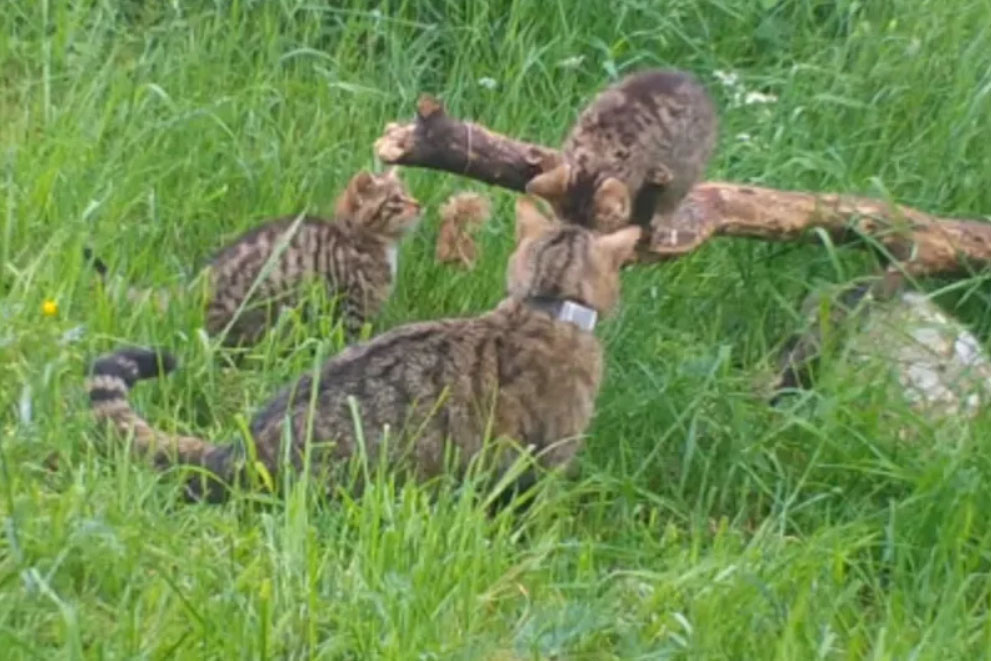Captive-bred Scottish wildcats give birth in wild
Two captive-bred female European Wildcats have successfully given birth to kittens in the wild in Scotland, marking a major milestone in the Saving Wildcats project.
The births are a first for the scheme, which is led by Royal Zoological Society of Scotland (RZSS).
Last summer, 19 wildcats raised at RZSS's Highland Wildlife Park near Aviemore were released into the Cairngorms National Park. After the project reported a positive start to the programme in autumn 2023, with few deaths, at least two females have now given birth.

One of the captive-bred female European Wildcats with her kittens in the Cairngorms National Park (RZSS).
Captive-bred wildcats
The captive-bred cats are tracked by GPS radio collars fitted to them before release, and the mothers and kittens have since been filmed.
Once the kittens are old enough, attempts will be made to get a DNA profile from them – RZSS hopes they are the offspring of male wildcats that were released last year, and not feral domestic cats.
Before the wildcats were released, RZSS and its partner organisations trapped, neutered, vaccinated and released any feral domestic cats they could find in the local area.
Hopes for the future
Following a study that ran between 2015-2020, conservationists feared the species was on the verge of extinction in Britain. Loss of habitat, breeding with feral cats and disease has been among the main threats to the Scottish wildcat.
Dr Keri Langridge, Saving Wildcats field manager, said: "We have taken extreme care not to disturb the mother and kittens, and we carry out all monitoring work under licence from NatureScot.
"We didn't dare to dream that we would have wildcat kittens in the first year of releases, and seeing those kittens on the video was the most exciting moment of the project so far."
Plans are currently afoot to reintroduce the feline to parts of England, too, with Devon earmarked as an area for releases.

